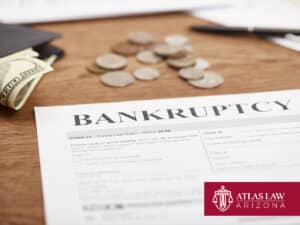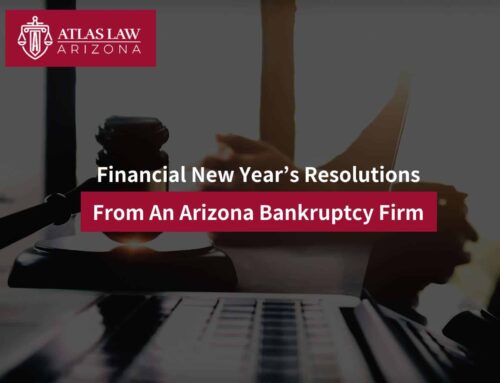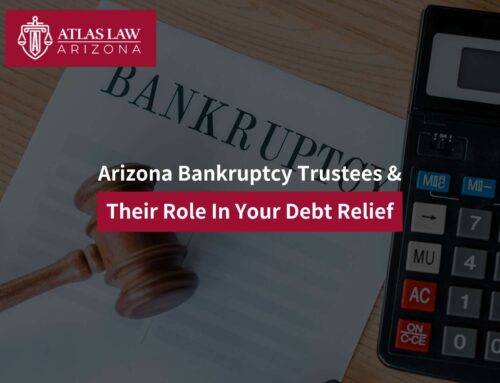A Beginner’s Guide To Bankruptcy: Making Sure You Qualify To File In Nevada
Bankruptcy is a powerful tool that allows consumers to gain control of their financial situations by clearing or reorganizing debts. Debtors can use chapter 7 or chapter 13 to protect their assets from creditors while debts are addressed under supervision from the court. But filing for bankruptcy with a mistaken assumption that you qualify could be inconvenient and costly. Read on to learn more about some of the requirements that must be met for a bankruptcy case to be discharged in Nevada. If you’re seeking bankruptcy representation in the Las Vegas area, our firm offers free consultation and payment plans starting at Zero Dollars Down. To get started with your free consultation today, call 602-649-4949.
Residency Requirement
A residency requirement is how long a person must live in a state before that state has jurisdiction over certain legal matters. States can set their own residency requirements for bankruptcy filings, which sometimes means a debtor who has recently moved will need to file their case in their previous home state. To qualify for bankruptcy in Nevada, a debtor must live here for at least 180 days, or 6 months. Additionally, a debtor must reside in Nevada for at least 730 days, or 2 years, before qualifying to use Nevada’s bankruptcy exemptions to protect their assets. Consult with a bankruptcy attorney if you are unsure whether you meet Nevada’s bankruptcy residency requirement- call 602-649-4949 for your free consultation today.
Income Qualification
Chapter 7 and chapter 13 have separate income requirements, so it’s possible for a debtor to qualify for just one, both, or neither. A debtor needs to prove they don’t have the income to realistically pay off their debts to qualify for chapter 7. A debtor needs to prove they can pay off mandatory debts in either 3 or 5 years to qualify for chapter 13.
There are two tests a debtor can use to income-qualify for chapter 7 bankruptcy. The primary income qualification method for chapter 7 is to compare household income to the state median household income. When household income falls below the state median, the debtor is income-qualified for chapter 7 bankruptcy. Nevada’s income guidelines for chapter 7 bankruptcy filed in 2024 are as follows:
- 1 earner: $64,412
- 2 people: $81,020
- 3 people: $88,992
- 4 people: $99,819
An alternative way to qualify for chapter 7 bankruptcy is through the means test. Step one of the means test is to calculate your current monthly income using your last 6 months’ of income information. This includes income from other members of your household, unemployment income, rental income, interest and dividends, and more.
Step 2 is to subtract as many allowable expenses as possible from your current monthly income. An allowable expense is one that meets the necessary expense test, or that is necessary to provide for a debtor’s health and welfare and/or production of income. The National Standards provide guidelines for basic monthly living expenses for American families, which are:
- Food: $458 for an individual, $820 for 2 people, $977 for 3 people, and $1,143 for 4 people
- Housekeeping supplies: $44 for an individual, $75 for 2 people, $83 for 3 people, and $82 for 4 people
- Apparel & services: $87 for an individual, $157 for 2 people, $187 for 3 people, and $300 for 4 people
- Personal care products & services: $48 for an individual, $80 for 2 people, $87 for 3 people, $97 for 4 people
- Miscellaneous: $171 for an individual, $279 for 2 people, $343 for 3 people, and $405 for 4 people
A bankruptcy debtor can deduct their rent or mortgage payments from their current monthly income based on the local standards for housing and utilities. The allowable housing expenses for a bankruptcy debtor range based on county, as well as how many people are in the household. The standards include rent, mortgage, property taxes, interest, insurance, maintenance, repairs, gas, electric, water, heating, garbage collection, residential telephone service, cell phone service, cable television, and internet service.
There are other standards the debtor can use to deduct expenses from their current monthly income, like the transportation expense standards and out-of-pocket health care expenses national standards. The number you calculate after these deductions is your disposable monthly income, which is also used to determine monthly payments in chapter 13 bankruptcy. To income-qualify for chapter 13 bankruptcy, the debtor must have high enough disposable monthly income to pay off bankruptcy fees, secured debts, and priority debts during their payment plan. Unsecured debts only need to be paid to the extent that the debtor’s disposable monthly income allows.
Miscalculations in bankruptcy equations can result in negative consequences like case dismissal. When a case is dismissed, the debtor loses the protections from the automatic stay until they re-file their case, if that option is available. Retaining a skilled bankruptcy attorney can help you avoid these types of pitfalls throughout your case. To discuss your options with a dedicated bankruptcy professional, call 602-649-4949 for your free consultation with our firm.
Prior Bankruptcy Filings
If you have filed for bankruptcy in the past, you may have to wait before you can enjoy the full benefits of filing for bankruptcy once more. There are waiting periods for bankruptcy based on whether your prior bankruptcy was a chapter 7 or chapter 13. If your first case was a chapter 7, you will need to wait 8 years before you can file another chapter 7 case. If you wish to file for chapter 13, the waiting period will only be 4 years. If your first case was a chapter 13, you need to wait at least 6 years before you can discharge debts in chapter 7 bankruptcy. The waiting period between chapter 13 cases is 2 years. While there may be waiting periods between bankruptcy discharges, there is no limit to how many times a debtor can file for bankruptcy. Do you need assistance determining if you have met the applicable waiting period for your bankruptcy filing? Schedule your free consultation with a skilled Las Vegas bankruptcy lawyer today by calling 602-649-4949.
Confirm Your Assets Are Protected
As mentioned above, a debtor must reside in Nevada for at least 2 years before they can use Nevada’s exemptions to protect their assets in bankruptcy. Assets that don’t have exemptions applied to them can be taken to be sold by the bankruptcy trustee. The proceeds from assets sold at auction will be distributed among the creditors and trustee. You can still file for bankruptcy if your assets aren’t protected by exemptions, but it is a risk that many aren’t willing to take when declaring bankruptcy. To see if your assets will be safe in a chapter 7 or chapter 13 filing in Las Vegas, contact our firm for your free consultation at 602-649-4949.
Schedule Your Free Vegas Bankruptcy Lawyers Consultation Today
All of the information described is just a piece of the puzzle in filing for bankruptcy in Las Vegas. Our skilled Arizona Zero Down Bankruptcy Law Firm team can help you fit it all together so you get the most out of your bankruptcy case without interruptions and delays. We eliminate the risk of starting the process by offering free consultations and payment plans starting at Zero Dollars Down. Contact us today by calling 602-649-4949.





